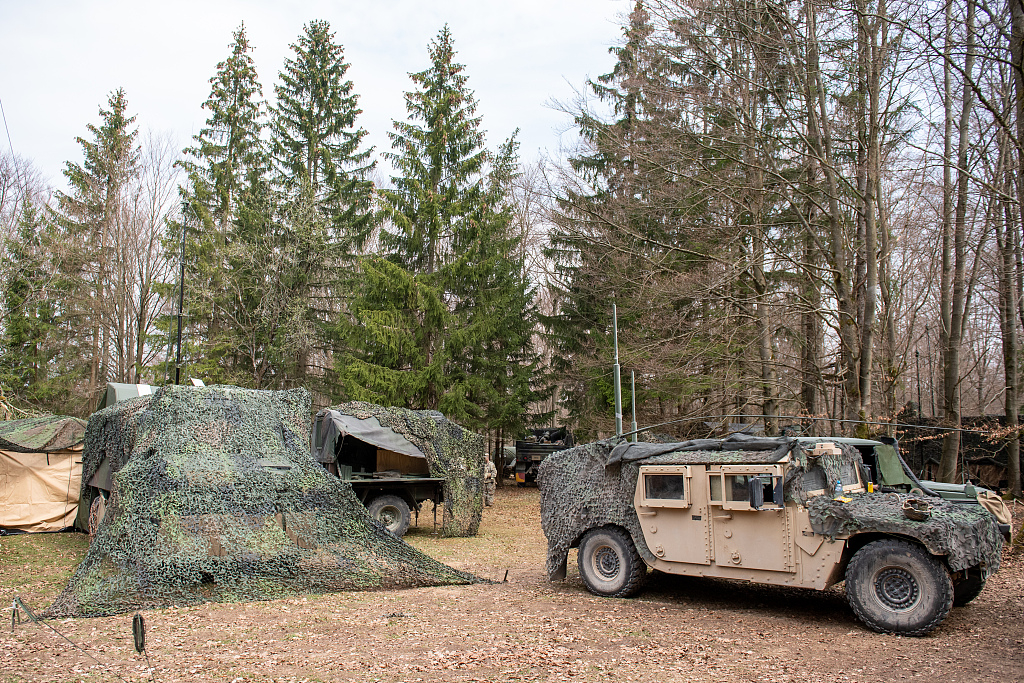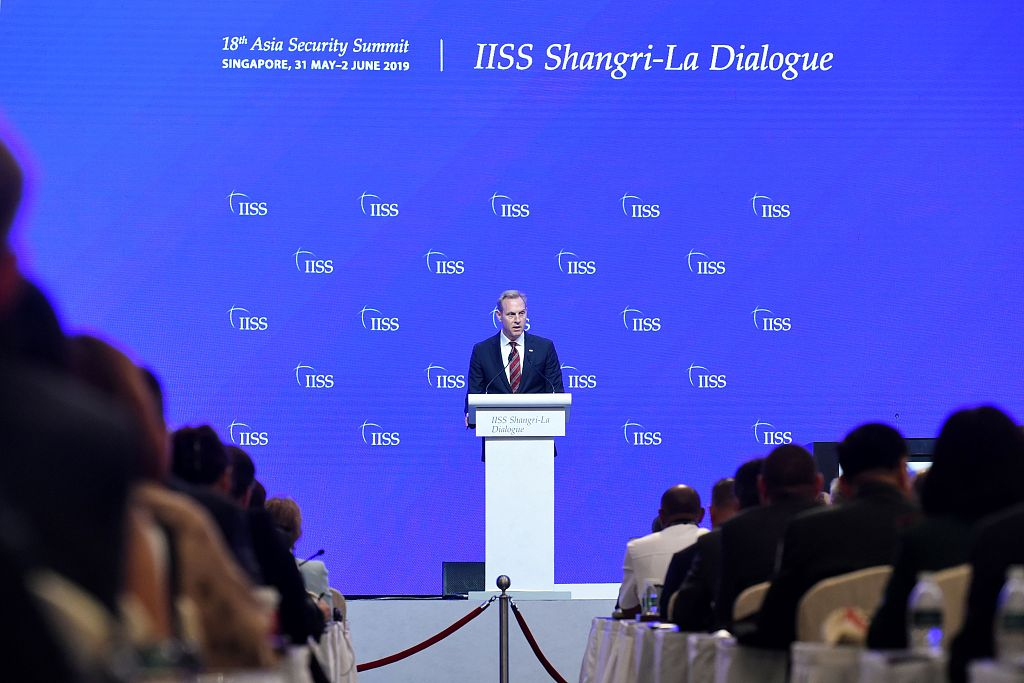
Opinion
15:25, 02-Jun-2019
Can stable China-U.S. military ties be maintained?
Tom Fowdy

Editor's Note: Tom Fowdy is a British political and international relations analyst and a graduate of Durham and Oxford universities. He writes on topics pertaining to China, the DPRK, Britain and the United States. The article reflects the author's opinion, and not necessarily the views of CGTN.
In the midst of growing discord between China and the United States, Acting Secretary of Defense for Washington Patrick Shanahan held talks with Chinese Defense Minister Wei Fenghe at the Shangri-La Dialogue, an annual defense and security gathering held at the hotel of the same name in Singapore.
The talks, despite a speech by Shanahan critical of China that same day pertaining to the South China Sea issue, were described as "constructive and productive" by officials, with two having discussed ways to "build a military to military relations that reduce misunderstanding and miscalculation between the two nations."
Without a doubt, professional and cool-minded military-to-military relations are a cornerstone of global stability, well-being and security. However, one should note that it is impossible to separate necessities from the broader diplomatic contexts and mindsets in which they operate.
Since the current presidential administration has decided that it does not want constructive "cooperation" with China, amplifying rhetoric of an apparent "China threat" and depicting all things like a security problem, one must surely question how can stable military-to-military relations occur in such a context? Unless the United States is prepared to engage level-headedly with China, then these efforts are doomed to fail.
What do we define as "military-to-military relations"? The concept refers to working level ties between two countries armed forces which occur in a cooperative, productive and professional manner. Given the obvious inclinations of what a military does, the grounds for such to be misunderstood are large and in turn, the consequences of miscalculations are huge.

Military vehicles are parked at a Tactical Operations Center during the Allied Spirit X international military exercises at the U.S. 7th Army training center near Hohenfels, Germany, April 9, 2019. /VCG Photo
Military vehicles are parked at a Tactical Operations Center during the Allied Spirit X international military exercises at the U.S. 7th Army training center near Hohenfels, Germany, April 9, 2019. /VCG Photo
As a result, some kind of organized control and communication is needed from one organization to the next. Hence what is referred to as "military-to-military" relations.
Whilst such a term does not necessitate alliances or combined combat operations, it nevertheless refers to a meaningful effort between the two bodies to communicate to each other, avoid misunderstandings and logistical clashes and to operate in a similar space smoothly and efficiently.
Such may consist of goodwill gestures such as bilateral leadership meetings, port visits, joint training exercises or more broadly, cooperation on global security matters such as global counter-terrorism efforts and so on. In any instance, military-to-military ties are crucial for stability.
Nevertheless, militaries are not wholly independent bodies and operate dependently upon the political forces which control them and strictly set their parameters for action. A military ultimately does not pick and choose who are its enemies, and who are its friends, or who should be trusted or distrusted. For military relations between China and the United States, this means the events of the past year have not been good news.
Despite the longstanding differences between the two countries, the People's Liberation Army (PLA) and the United States Armed Forces have generally enjoyed cordial and stable ties, including cooperation in a range of areas. Now, however, geopolitical frictions are threatening to uproot stability in this area by inducing increased distrust between the two parties.
The United States has made a political decision that its bilateral relationship with China should not be conducted through cooperation, but competition even to the point of threatening global stability itself. Political discourse in Washington is now dominated by the "China threat theory."

Acting U.S. Secretary of Defense Patrick Shanahan speaks at the IISS Shangri-La Dialogue summit in Singapore, June 1, 2019. /VCG Photo
Acting U.S. Secretary of Defense Patrick Shanahan speaks at the IISS Shangri-La Dialogue summit in Singapore, June 1, 2019. /VCG Photo
Given this, the administration in Washington has sought to depict China as a global military threat and subsequently increase its activities around the country's periphery with the view to provocation. With Beijing already being treated like a de-facto adversary, one must wonder how can stable and safe military-to-military ties be sustained?
The weaponization of cold war like hysteria in Washington and the indiscriminate labeling of everything as a security threat will inevitably place the activities of the PLA in a negative and distrustful light, with more assertive and ambitious moves from Washington also having the same effect.
The result is that the risk of miscalculation between the two bodies and the subsequent cost is amplified, and in turn, the liability for the Taiwan Strait, the East China Sea and the South China Sea to become potential military flashpoints is also accelerated. Consequentially, productive dialogue between the two defense ministers is being drowned out by the constraints of politics.
As a whole, military issues must be pursued with reason and reservation. China-U.S. military relations are extremely important for the safeguarding of the world's most populous geographical region, however, few can deny that because of decisions made in Washington, they risk being sent on a downward trajectory.
Whilst the dialogue between the two defense appointees illustrates that there can be a space for positive cooperation and communication between the two bodies, such however starts with the White House and for now, there is no indication they want to de-escalate things.
(If you want to contribute and have specific expertise, please contact us at opinions@cgtn.com.)

SITEMAP
Copyright © 2018 CGTN. Beijing ICP prepared NO.16065310-3
Copyright © 2018 CGTN. Beijing ICP prepared NO.16065310-3